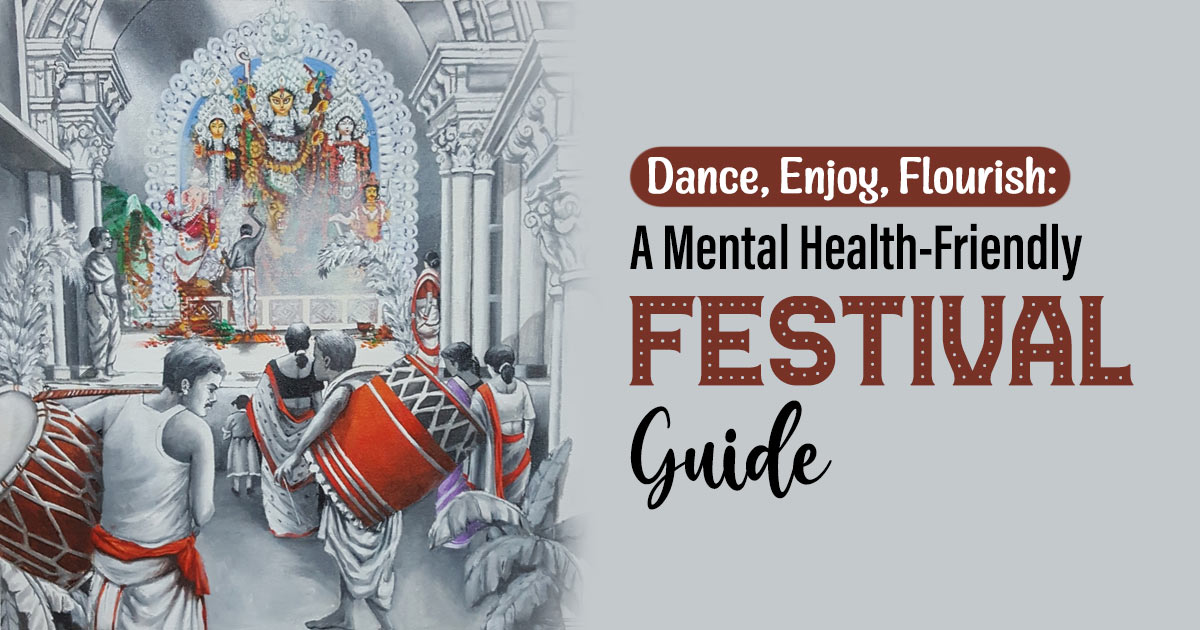- Emerging research shows festivals boost mental health.
- However, festivals can also pose challenges to individuals with mental health conditions.
Festivals are a universal part of human culture, bringing people together to celebrate traditions, connect with others, and find joy in shared experiences. These celebrations have a significant impact on our mental health, both positive and negative.
Do Festivals Boost Mental Health?
Research shows that festivals boost mental health in a number of ways:
1. Social Connection And Belongingness:
Festivals offer a unique opportunity to connect with others and foster a sense of belonging. Sharing traditions and celebrations with a community can combat feelings of isolation and loneliness.
2. Reduced Stress And Increased Joy:
The festive atmosphere, filled with music, laughter, and celebration, can act as a natural stress reliever. The release of endorphins during enjoyable activities contributes to increased joy and reduced stress.
3. Boosted Self-Esteem:
Participating in festival-related activities like dancing, singing, or performing can boost self-esteem and confidence. Positive feedback from peers and the community can have a profound impact on self-worth.
4. Cultural Identity And Pride:
Festivals often celebrate cultural heritage and traditions. Engaging in these celebrations can enhance one’s sense of cultural identity and pride, which can positively impact mental health.
5. Mindfulness And Reflection:
Some festivals incorporate mindfulness practices, such as meditation or moments of reflection. These practices provide opportunities for emotional regulation, stress reduction, and self-awareness.
Challenges To Mental Health During Festivals
But festivals can also pose certain challenges to mental health, including:
1. Financial Stress:
Preparing for and participating in festivals can strain finances, leading to stress and anxiety for those with limited resources.
2. Overindulgence:
Festivals often feature rich and indulgent foods and drinks. Overconsumption can lead to feelings of guilt, regret, and physical discomfort, affecting mental well-being.
3. Social Pressure:
The pressure to conform to social norms and expectations during festivals can be overwhelming. Individuals may feel obliged to attend numerous events, leading to exhaustion and stress. Peer pressure to engage in excessive drinking or risky behaviors can also negatively impact mental health.
4. Loneliness:
While festivals can foster a sense of community, they may also intensify feelings of loneliness for those who are isolated or lack a supportive social network.
Tips for Navigating Festivals with Mental illness
Consider the following tips for navigating festivals with mental illness
1. Set Realistic Expectations:
Recognize that it’s okay to prioritize your mental health. Set realistic expectations for your participation in festivals and remember that it’s perfectly fine to decline invitations or take breaks when needed.
2. Practice Moderation:
Enjoy the festive foods and drinks in moderation. Overindulgence can lead to physical discomfort and emotional distress. Listen to your body and know your limits.
3. Mindful Participation:
Engage mindfully in festival activities. Take moments to pause, reflect, and appreciate the experience. Mindfulness practices can help you stay connected to the present and reduce stress.
4. Plan Ahead:
If finances are a concern, create a budget for festival-related expenses. Planning ahead can alleviate financial stress and allow you to enjoy the festivities without worry.
5. Seek Support:
If you’re feeling overwhelmed or lonely during festivals, reach out to friends, family, or support networks. Sharing your thoughts and feelings can provide emotional relief.
6. Prioritize Self-Care:
Amid the excitement of festivals, don’t neglect self-care. Ensure you get enough rest, eat nutritious meals, and engage in physical activities to maintain your well-being.
7. Set Boundaries:
It’s okay to set boundaries during festivals. If certain activities or social interactions are causing distress, communicate your limits respectfully, and prioritize your comfort.
8. Connect With Cultural Identity:
If the festival celebrates your cultural heritage, take pride in participating. Embrace the opportunity to connect with your roots and reinforce your cultural identity.
9. Engage In Positive Conversations:
When socializing during festivals, focus on positive and uplifting conversations. Avoid discussions that may trigger stress or anxiety.
As a fundamental aspect of human culture, festivals boost mental health. Attending festivals comes with the potential to enhance well-being through social connection, stress reduction, boosted self-esteem, and cultural identity reinforcement.
However, festivals can also pose challenges, more so if you are suffering from certain mental health conditions like depression, social anxiety, or eating disorders. But, by embracing practical strategies, individuals can fully enjoy the benefits of festivals while safeguarding their mental well-being—ensuring that these celebrations remain moments of joy, connection, and cultural enrichment.




























